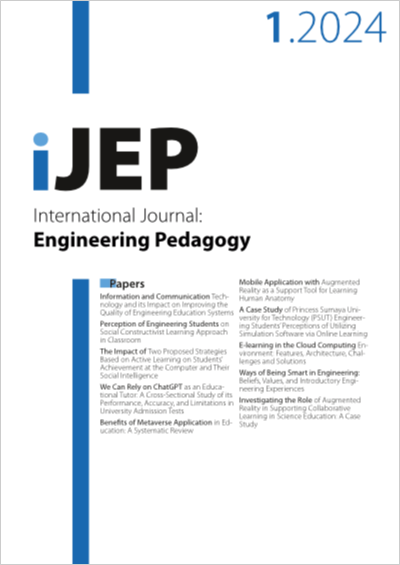The Impact of Two Proposed Strategies Based on Active Learning on Students' Achievement at the Computer and Their Social Intelligence
DOI:
https://doi.org/10.3991/ijep.v14i1.47085Keywords:
Impact, Proposed Strategy, Active learning, Achievement, Social Intelligence, Computer, Students, Secondary.Abstract
Active learning is a teaching method that involves students actively participating in activities, exercises, and projects within a rich and diverse educational environment. The teacher plays a role in encouraging students to take responsibility for their own education under their scientific and pedagogical supervision and motivates them to achieve ambitious educational goals that focus on developing an integrated personality for today’s students and tomorrow’s leaders. It is important to understand the impact of two proposed strategies based on active learning on the academic performance of first-class intermediate students in computer subjects and their social intelligence. The research sample was intentionally selected, consisting of 99 students. The experimental group comprised 33 students from division (B) who were taught according to the first proposed strategy, while the second experimental group, represented by division (A), and also consisted of 33 students. The control group, made up of 33 students from division (C), was taught using the usual method. Two tools have been prepared: an achievement test with 40 items and a measure of social intelligence consisting of 20 items. The research results indicated that the experimental groups, which utilized the first and second proposed strategies based on active learning, outperformed the control group. As a result, several conclusions, recommendations, and proposals were made.
Downloads
Published
How to Cite
Issue
Section
License
Copyright (c) 2023 Maysam Raad Yousif, Linda Talib Ameen, Basim Mohamed Jassim, Ban Hassan Majeed

This work is licensed under a Creative Commons Attribution 4.0 International License.



